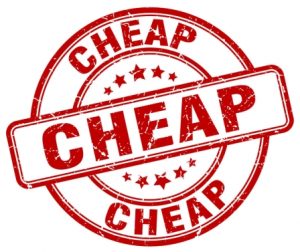— January 7, 2018

nattanan23 / Pixabay
People who have access to funds to start a business are three times more likely to say they’re planning to start a business, according to a Gallup poll.
This isn’t too surprising. Everyone knows that it takes money to make money. The truth is, in a lot of industries, you can’t expand operations effectively without capital. And if you don’t have access to funds to fuel business growth, you’ll need to find a way to raise money instead.
A good place to start is with a loan. Here are five solid loan options to consider to support business expansion:
1. Traditional term loan
Term loans are likely what you think of when you imagine a traditional business loan. A term loan is a lump sum of cash that is extended to your business. You’re given all the money at once, and expected to repay that money, along with interest and fees, over a fixed period of time. Typically, you’ll make weekly or monthly payments over the approved term.
Short-term loans are available from some lenders if you are a newer business or have a less-than-stellar credit history and don’t qualify for a traditional term loan. The credit limit will be likely be lower and rates and fees will probably be more expensive for a short-term loan.
Term loans can be used for a wide variety of business purposes, from hiring staff to funding marketing campaigns to renting a new office space. To get favorable rates and terms, you need to have a solid credit score, preferably two or more years in business, and revenue near or exceeding $ 100,000.
2. SBA loan
The US Small Business Administration (SBA) doesn’t directly give loans. They guarantee loans for banks and other lenders, alleviating the associated risks with small business lending.
The biggest advantage of getting a loan through the SBA is that interest rates and fees are typically lower than other loan products. You need good credit (usually 650 or higher), and your business should be in good financial shape to get approved. SBA loans can be used for a variety of purposes, such as for seasonal financing and refinancing business debt.
3. Business line of credit
A business line of credit is a great loan option to support business expansion. It allows you to access to a set amount of cash and is typically used to cover everyday business expenses.
Much like a credit card, you only have to pay interest on the funds you use with a business line of credit. A business line of credit can be revolving, meaning it goes back to the original limit after repayment, or a non-revolving, which just allows you to use a set amount over a fixed period of time.
There are other notable advantages to this loan product. For instance, a business line of credit offers flexible payment options, flexible use of funds, and access to cash on demand. If approved, your business will probably have a credit limit between $ 10,000 to $ 1 million, depending on your revenue, financial standing, and other factors.
4, Personal loan for business
While it may be tempting to just opt for a personal loan to finance your business, this is only a good idea in specific circumstances, like the following:
- If you’re just starting out
- If the amount is small
- If you’re worried about collateral
To get the best rates and terms for a personal loan for business, your credit score and income are most important. It’s not uncommon for personal loans to have lower rates than business loans, so they’re definitely worth exploring if your situation fits into one of the aforementioned scenarios.
Just understand that this borrowing activity will be recorded to your credit history. Also, be sure to treat the loan like a business loan and only use it for such purposes.
5. Equipment financing
If you need to buy equipment, such as trucks, machinery, and computers, this is the way to go. The equipment itself serves as collateral.
Rates and terms can vary with equipment loans. If your credit score exceeds 600, you’ve been in business for a year or more, and generate six figures in annual revenue, you’ll likely get some really attractive equipment financing offers.
Getting the money you need to grow your business
Start with these five types of loans. There are numerous alternatives to these options as well. For instance, invoice financing can help cover unpaid invoices and merchant cash advances can give you an immediate cash injection. Both are options worth considering if you need a small amount of funds over the short term.
If you’re in good financial standing, are thorough during the application process and compare various options, you can most likely get the loan amount you need at desirable rates and terms. Be persistent and leave no stone unturned. The best loan possible to expand your business is out there.
Business & Finance Articles on Business 2 Community
(91)
Report Post






